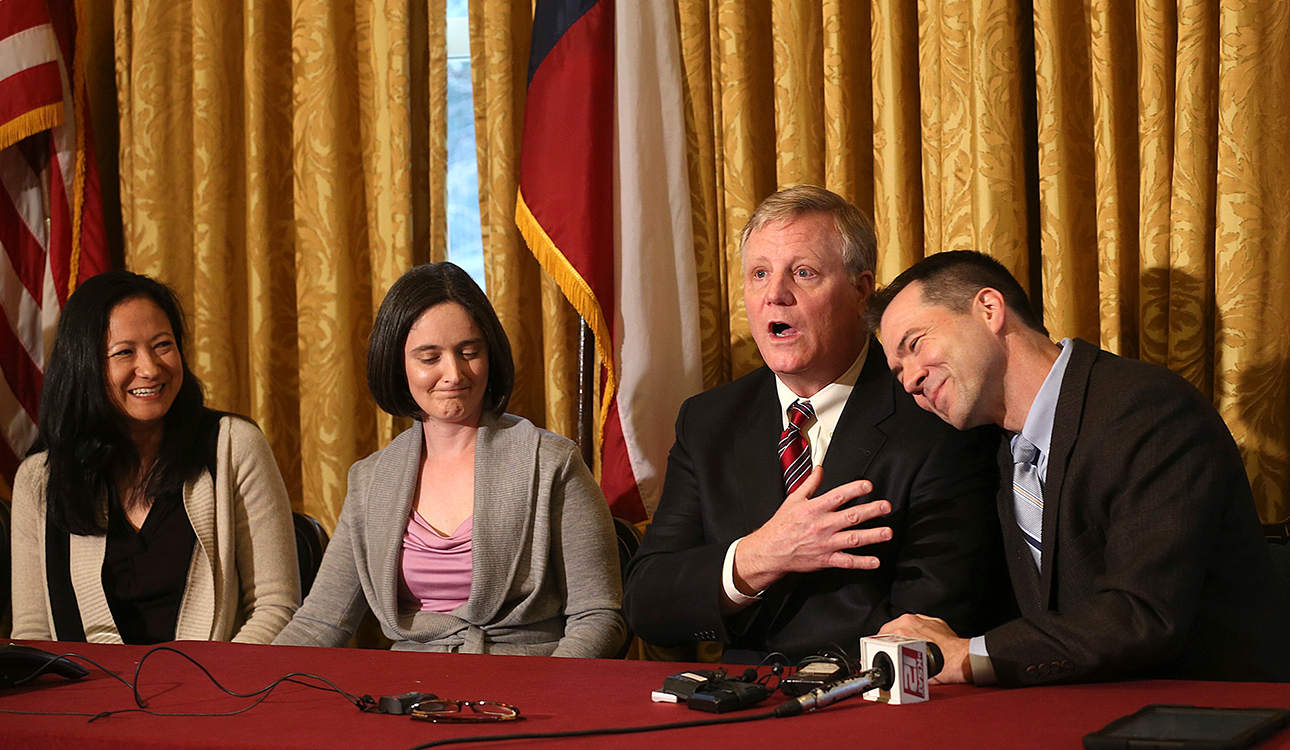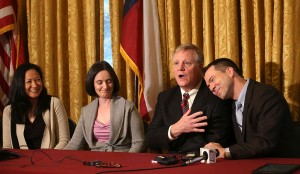

By Jordan Corona
Staff Writer
A federal judge decided Texas’ same-sex marriage ban is unconstitutional Wednesday.
U.S. District Judge Orlando Garcia ruled in favor of two homosexual couples seeking marital recognition from the state of Texas.
The defendants in the case included Gov. Rick Perry and State Attorney General Greg Abbott.
“Without a rational relation to a legitimate governmental purpose, state-imposed inequality can find no refuge in our United States Constitution,” Garcia wrote in his decision. “These Texas laws deny plaintiffs access to the institution of marriage and its numerous rights, privileges, and responsibilities for the sole reason that Plaintiffs wish to be married to a person of the same sex.”
The judge stayed his the ruling pending the decision of the Fifth Circuit Court of Appeals. This means Texas is still one of 33 states prohibiting homosexual marriage.
Abbott said he plans to submit an expedited appeal to the court, which is based in New Orleans.
“The U.S. Supreme Court has ruled over and over again that states have the authority to define and regulate marriage,” Abbott said. “The Texas Constitution defines marriage as between one man and one woman.”
Abbott’s official response to the ruling directed attention to that appeals process, saying the ultimate decision about state law is up to the higher courts.
The decision has people across the state and campus talking.
“I read the decision will probably get shut down,” Harker Heights senior Anthony Rodriguez said.
Almost two years ago, Rodriquez helped form a group of students who wanted to talk about LGBT issues called the Sexual Identity Forum, which meets in the Bill Daniel Student Center on Thursday nights. The Sexual Identity Forum is not an approved Baylor group.
Rodriguez said the group was not intended to promote a given agenda, but instead to encourage dialogue about sexual identity and gender on campus.
“I think there’s a misconception that Texas is a bastion of unfriendliness towards the LGBT community,” Rodriguez said. “In reality, we’re a lot more diverse than we’re given credit.”
For Colleyville sophomore Kristen Brown, the state ban seemed like a moral imposition, almost a violation of church-state separation. She said she thought the ban on same-sex marriage was discriminating.
“Based on my religious beliefs, I don’t really support gay marriage,” Brown said. “But I don’t think I have the right to tell someone they can’t.”
Alido freshman Connor Black said he does not agree with gay marriage.
“I’ve always grown up against it,” Black said. “Being from a church background, I was taught marriage is for a man and a woman.”
The case Garcia heard involved two homosexual couples.
After a 16-year relationship, Victor Holmes and Mark Phariss were denied a marriage license at the Bexar County Clerk’s office in 2013.
Cleopatra de Leon and Nichole Dimetman married September 2011 in Massachusetts and now share child-rearing responsibilities for Dimetman’s biological child. Although the state of Massachusetts recognizes both women as the child’s legal parents, Texas does not.
Plaintiffs needed to prove the law was responsible for some verifiable injury the parties suffered and that a decision to strike down the ban would make things better.
The ban on same-sex marriage protected Texas State Constitution Section 32. In that vain, parenthood is designated for a man and a woman.
Defending the state’s view, Perry, Abbott, Bexar County Clerk Gerard Rickoff and David Lakey, Texas Department of Health Services Commissioner, presented a case that Garcia did not find compelling enough to overcome the plaintiff’s standing.
“Overall, the Court finds Defendants have not satisfied their burden of proving that Section 32 is constitutional,” Garcia wrote in his official court opinion. “Defendants have failed to identify any rational, much less a compelling, reason that is served by denying same-sex couples the fundamental right to marry.”
The Associated Press contributed to this report.





